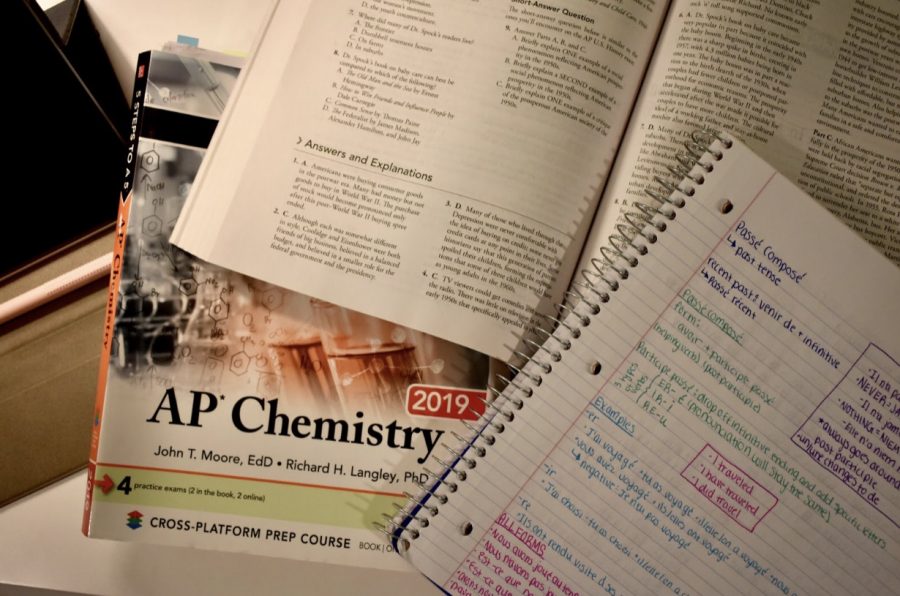Inside the world of AP classes
Many Mercy students chose to enroll in one or more Advanced Placement (AP) courses during their junior year. However, what seems like a good challenge and class to have on a college application can quickly turn into something that can slowly, but surely, suck away your time, energy, and enthusiasm. Once you have four tests, two labs, and a paper due on the same day, you have fully experienced the stress of AP classes.
Most high schools, like Mercy, offer AP classes. The appeal of AP courses is the chance to receive credit for a college course so you can start college ahead of schedule and save some money. However, this concept easily gets lost in stress about having the best application possible to get into your college of choice.
The AP courses that are offered at Mercy are: AP Physics, AP Biology, AP Chemistry, AP AB Calculus, AP BC Calculus, AP United States History, AP World History, AP Government, AP Spanish, AP Latin, AP French, and AP English Literature & Composition. The number of AP courses offered at Mercy is actually less than at many other schools, but AP course work combined with the college prep rigor can create extremely strenuous schedules for many students.
Senior Lauren Piziali has taken AP Biology, AP United States History, AP Calculus, and AP Physics. This combination of AP classes with her busy extracurriculars has kept Piziali busy throughout high school.
“The classes challenge me for sure,” Piziali said. “It definitely adds a lot of stress to my life.”
These courses bring more homework, tests, and projects, but overall, they dive into deeper detail in the subjects than one would get from taking a regular class.
“I think that taking AP classes has impacted me in a positive way,” Piziali said. “They taught me to keep going when things are difficult, and they have prepared me for college.”
These courses are true college level classes, so even without the potential college credit that could be received at the end of all of it, students gain knowledge, work ethic, and endurance by taking these classes that reflect what college will really be like.

